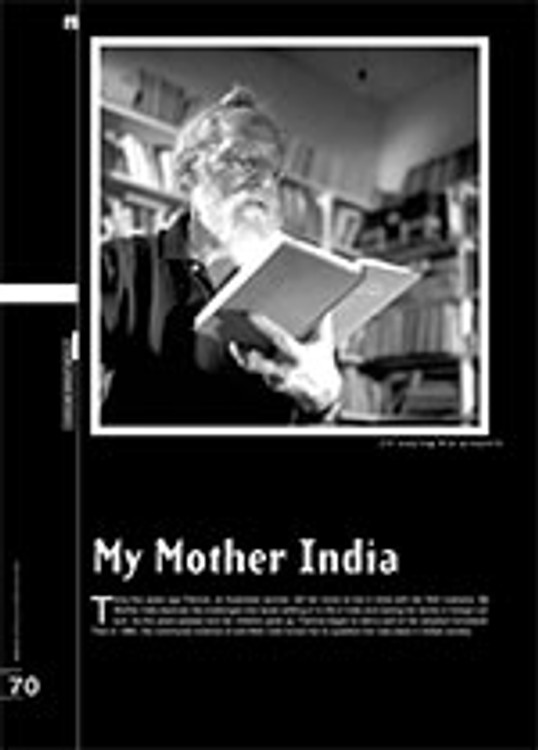Histories can tell lies. Their sins are the sins of omission. They choose what to put in, what to leave out. When I go searching for your story in the history books, the chapter on your story is missing. – Sophia Turkiewicz
Once My Mother (2013) is a documentary by filmmaker Sophia Turkiewicz about her struggle to reconcile with her refugee mother for abandoning her in an orphanage as a child. The story takes in the sweep of their two lives, beginning with her mother Helen, born in Poland in the early 1920s, and covering her epic journey from a Siberian gulag to Uzbekistan, Persia and Africa before finally finding safety in Australia with her young daughter Sophia. It is a story of survival and forgiveness. The story raises a number of interesting questions about the nature of memoir and biography, about how we tell stories, about memory and forgetting, about knowing some things but not others. In telling her mother Helen's story, Sophia is also telling us her story. An experienced filmmaker, Sophia draws on a number of sources to tell this story about her relationship with her mother, including conversations and interviews with her mother.
Abandoned in an Adelaide orphanage at the age of seven, Sophia feels betrayed by her mother, Helen. In early adulthood, Sophia still feels angry and resentful. Her mother is now married with two more children. Sophia rejects her new family and refuses contact with her mother.
In her twenties, Sophia is a filmmaker living in far-away Sydney, embracing her independence, but deep down blaming her mother when things go wrong in her life. Yet Sophia finds herself drawn back to her mother's life, using Helen's stories as inspiration for her films but disguising them as fiction.
Thirty years on, Helen has dementia. Sophia starts to question their deeply troubled relationship. She digs out an unfinished documentary film about Helen that she'd started as a film student years before and finds herself compelled to finish it.
Returning to her mother's former homeland of eastern Poland, in what is now Ukraine, Sophia begins to trace her mother's traumatic childhood. Orphaned as a young girl, Helen grows up in a rural Polish village. As an adolescent, she's illiterate and homeless, somehow surviving on the streets.
As Sophia re-examines her mother's life, she discovers the historical truth behind Helen's deportation to a Siberian gulag. Helen was one of almost two million Poles who were incarcerated in Russian gulags during World War Two. The truth behind this little-known episode of history reveals a dark story of betrayal involving Stalin and the Allies.
Miraculously given their freedom, Helen is part of a vast exodus of Poles who travel from Russia with no food or organised transport. Over months, they trek thousands of miles to Uzbekistan and, eventually, freedom in Persia. Most of the Poles perish on this treacherous journey. Helen is one of the few survivors and she's sent to a Polish refugee camp in Lusaka, Africa. Here she meets Valdiero, the love of her life, an Italian prisoner-of-war who becomes Sophia's father.
Finally, a decade after leaving Poland, Helen and her baby daughter arrive in Australia as refugees. Not long afterwards, she abandons Sophia in an orphanage.
With growing insight, Sophia starts to reassess her troubled relationship with her mother. But as Helen slips out of reach, Sophia must confront her own demons. Did she ever truly know this woman who became her mother? Does she have it in her heart to forgive her? And is it too late?
Curriculum Links:
Once My Mother would be a fascinating film text for middle and senior secondary students of Twentieth Century European History, Australian History, Migration Studies, Media and Film Studies, Family Studies, Biography and English. It would be an excellent film to explore and inspire students in cross-curriculum projects investigating concepts of identity, belonging, alienation, inheritance and generational change.
 Quick Shop
Quick Shop